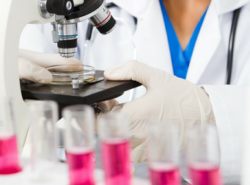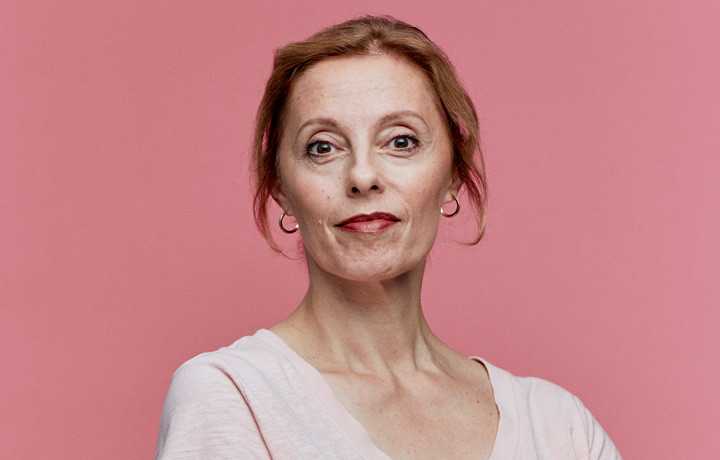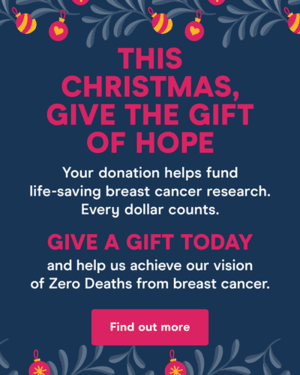
STUDY SHOWS 3D MAMMOGRAPHY HAS INCREASED DETECTION RATES
In an Australian-first study, NBCF-funded researcher Professor Nehmat Houssami, from Sydney University, conducted a screening trial comparing 2D and 3D mammography results.
Digital breast tomosynthesis is a type of 3D-mammography which increases the accuracy of a breast scan by reducing layers of overlapping tissue that can mask tumours. It can also reduce the likelihood of false alarms, where the screening shows an area that looks like a tumour.
10,046 women took part in the landmark trial, which uncovered that breast cancer detection was higher with 3D mammography than 2D mammography.
“Breast cancer screening is at a cross-roads. It is exciting to be involved in research knowing it will guide the best way forward, which may be changing to a new imaging technology or a different model of screening tailored to the individual woman’s risk,” said Professor Houssami (pictured left).
“Research will provide the evidence on what will improve early detection of breast cancer without adding harm, and whether we can reduce treatment for early-stage cancer to minimise the side effects that women experience.”
This groundbreaking study shows great promise for the future of breast screening. Ultimately, it will lead to better detection of early stage breast cancer, speed up diagnosis and provide better outcomes for women.

WHY IMPROVED BREAST SCREENING IS SO IMPORTANT FOR WOMEN LIKE KAREN
“I know that advances in screening technology has made a huge difference to women diagnosed with breast cancer. Having access to a digital mammogram like I did might have saved my other two friends who didn’t make it so we’ve got to keep pushing forward.” Karen, diagnosed 2008

MORE ABOUT KAREN
After losing a close friend to breast cancer, Karen, 46, decided to start getting regular health checks. A digital mammogram revealed that the Sydney mother-of-two was diagnosed with breast cancer in her left breast.
Karen had a bilateral mastectomy, chemotherapy and a complete breast reconstruction for her treatment. She was also accepted into a clinical trial which used existing drugs to prevent secondary cancers. Karen recently celebrated a decade of being cancer-free and became a community ambassador for NBCF to highlight the need for continued research in breast cancer.
“I lost a friend to breast cancer several years before my diagnosis. Her death lead to my diligence and thankfully finding my cancer early,” said Karen.
“No child should be left motherless; no mother should have to fear leaving her children. Research is the answer at every step: detection, treatment, management and potentially one day making deaths from breast cancer a thing of the past.”
Further Reading
View all research
